When soliciting quotations for services, a procuring agency has considerable discretion in defining its evaluation criteria and priorities. However, once a decision is made, the agency must adequately document the justification for the award. Failure to do so can result in a challenge by an unsuccessful offeror. An example is the bid protest by Guidehouse LLP with the Department of Homeland Security's contract award for financial support services. The protest involved two rounds, with the first resulting in a request for revised quotations and the second leading to the resulting decision by the Government Accountability Office (GAO).
Guidehouse LLP, B-419848.3; B-419848.4; B-419848.5, June 6, 2022
THE SOLICITATION
In January 2021, the United States Secret Service, acting on behalf of the Department of Homeland Security (DHS), issued a Request for Quotations (RFQ) for financial support services to be provided under an indefinite-delivery, indefinite-quantity (IDIQ) contract of a base year with four one-year options. The evaluation factors for awarding the contract were technical capability, past performance, and price, in that order of importance. In May 2021, DHS awarded the contract to Deloitte Consulting LLP (Deloitte). The decision was protested by Guidehouse LLP. DHS retracted the award, amended the RFQ, and requested revised quotations from offerors by July 19, 2021. After re-evaluating the revised quotes, Deloitte was once again the awardee. Once more, Guidehouse protested the award.
THE PROTEST
Guidehouse presented four arguments in its protest, but the Government Accountability Office (GAO) dismissed two due to lacking supporting evidence. The GAO evaluated the remaining two arguments.
Organizational Conflict of Interest (OCI)
One of Guidehouse's arguments was that the agency's evaluation did not adequately evaluate Deloitte's OCI. Guidehouse specifically contended that by awarding the contract to Deloitte, the company would be tasked with monitoring, reporting, and addressing issues related to its activities under a separate Secret Service task order.
In 2018, Deloitte was awarded Task Order No. 70US0918F2GSA0088 by the Secret Service. This contract was for enterprise support for its financial system, TOPS/FRED. The performance work statement (PWS) for the Chief Financial Officer (CFO) task order included tasks directly connected to TOPS/FRED. Despite this, Deloitte's quotation for the CFO support services task order stated that it was unaware of any actual or potential OCIs. However, Deloitte made sure to differentiate between its quotation for the CFO support services task order and the TOPS/FRED award.
However, DHS contended that its evaluation was reasonable. During its OCI analysis, DHS concluded that there were no actual or potential OCIs concerning Deloitte's quotation. DHS provided a two-page report that compared the size and scope of the TOPS/FRED contract to that of the CFO support services contract. DHS asserted that Deloitte would not be required to correct or evaluate work related to the TOPS/FRED contract under the CFO support services contract. DHS also stated that even though Deloitte employees would review data entered by agency personnel in the TOPS/FRED system while other Deloitte employees provided IT support on the same system, it did not create an OCI.
Best-Value
Guidehouse argued that DHS did not conduct a proper best-value tradeoff evaluation or analyze Deloitte's higher-priced quotation. Therefore, as the best-value tradeoff evaluation was flawed, Guidehouse contended the award decision was also unreasonable.
In response, DHS asserted that the Source Selection Authority (SSA), who was also the Contracting Officer (CO), evaluated the technical aspects and determined that Deloitte's proposal was technically superior to Guidehouse's, despite the higher price. Therefore, based on Deloitte's technical advantage, DHS argued that the SSA reasonably concluded that Deloitte's proposal offered the best value.
THE OUTCOME
Organizational Conflict of Interest
Under Federal Acquisition Regulation (FAR) 9.504 and 9.505, agencies are required to evaluate and identify potential OCIs early in the evaluation process and take steps to avoid or mitigate any such conflicts that could compromise the selection authority's objectivity or give a competitive advantage. If Deloitte could not provide impartial advice to the agency due to competing interests because of Task Order No. 70US0918F2GSA0088, an OCI that impairs objectivity may occur. Furthermore, a conflict of interest can arise when a contractor is in a position to assess itself or its affiliates, potentially leading to biased assessments that serve the contractor's interests.
The GAO reviewed the DHS' OCI investigation to assess whether it adequately considered the possibility of a significant conflict of interest. The GAO concluded that the brief report of general conclusions was inadequate to support DHS' finding that no OCI existed. Instead, it suggested that the CO had a basic misunderstanding of their legal obligations regarding an OCI investigation. Additionally, the brief report indicated that the agency did not conduct a thorough analysis or research into any potential conflict of interest. Based on these factors, the GAO determined the OCI evaluation was unreasonable.
Best-Value
The GAO determined the SSA's reasoning for Deloitte's best-value determination was inadequate. Although the agency provided a generalized statement regarding the technical attributes of Deloitte and an explanation of why Guidehouse was not the best value, the GAO determined the source selection decision memorandum did not sufficiently explain how Deloitte's superior technical attributes warranted the price premium. As a result, the SSA's conclusion could not be determined as reasonable. Therefore the determination of the best-value tradeoff was improperly conducted.
Due to these two arguments, the protest was sustained.
THE TAKEAWAY
The ruling underscores the importance of conducting a thorough OCI analysis and making a reasonable decision based on the findings when evaluating potential contractors. Furthermore, it highlights the need for soliciting agencies to adequately support their best-value tradeoff determination with documentation, including a substantive discussion of the rationale for their decision. Merely providing generalized statements is insufficient, as the GAO will not presume that such statements reflect the agency's reasonableness in a best-value tradeoff scenario.
If you suspect a contract has been erroneously awarded to another contractor, feel free to contact Veterans Advocacy Law Group. Our team of Government Contracting attorneys can assess the solicitation award and help you determine if filing a bid protest is necessary.


